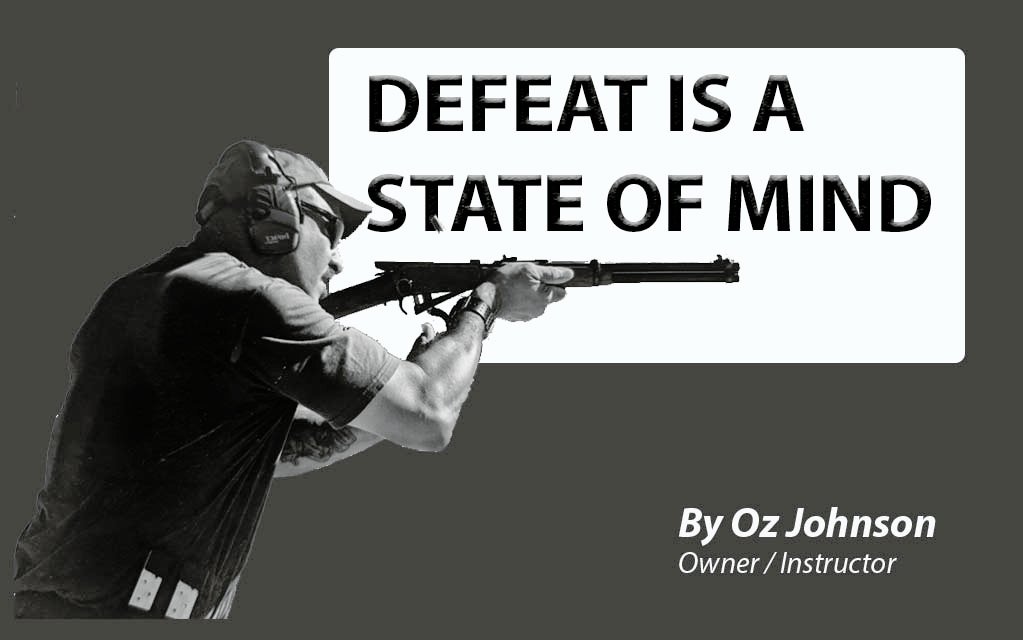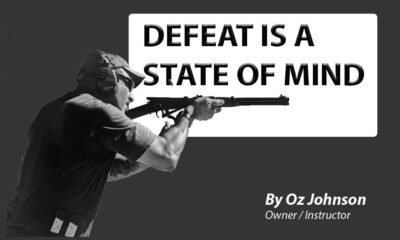Defeat is a state of mind
Absolutely, I’m ready! Please provide the title you’d like me to rewrite.

When is an individual truly ready to carry a firearm? This question encompasses more than mere ownership; it involves a serious commitment to responsibility, training, and preparedness. Carrying a firearm demands a mindset attuned to the weighty decisions and actions it entails. It’s insufficient to simply own a weapon; one must develop the skills necessary for myriad potential situations.
In high-pressure scenarios, stress and adrenaline can significantly affect judgment. Quick, precise decisions might mean the difference between saving a life or facing severe legal repercussions. This shift from hero to potential criminal occurs in moments.
As an instructor, I stress these realities to my students without deterring their self-defense initiatives. The dynamics of a self-defense situation can influence whether an action is perceived as justified or misguided.
Many students excel in shooting and firearm handling, yet some still hesitate to carry regularly. A critical question arises: What level of training should one have before considering the responsibility of self-defense carry? The complexity of this question cannot be understated. There are cases where improperly trained individuals have had their firearms used against them, while others have regretted not having their weapon when confronted with danger.
The debate continues. Would I feel regret if a well-trained student faced a crisis unarmed? Conversely, some individuals may pose risks to themselves and others despite training.
As an advocate for the 2nd Amendment, I aim for responsible gun owners to carry for personal and broader protection. Identifying when one becomes a “force multiplier” is crucial in this discussion.
Critical and strategic thinking may outweigh the basics of firearm handling. My classes emphasize effective firearm operation while fostering an understanding of tactical thought and legal compliance.
Ultimately, the choice to carry rests on unique readiness—both emotional and practical. Continuous training, self-reflection, and respect for the serious responsibility of firearm ownership are vital in this journey. While laws define technical requirements, personal accountability in ensuring safety and skill transcends these regulations.
True readiness isn’t merely about precision shooting; it’s about the mental resilience to act decisively in critical moments. Gun owners must regularly assess their capabilities and seek ways to improve. A fundamental question persists: Are you prepared to make life-altering decisions during a crisis? Are you committed to the discipline that responsible firearm use demands?
This journey is not uniform; each person must find their balance between the desire for protection and a commitment to safety. When one’s mindset aligns with their skill, carrying a firearm becomes a reflection of dedication to personal responsibility.
Your safety encompasses both your firearm and a tactical mindset. Developing this mindset is pivotal. Choosing the right moment to start carrying is essential—waiting too long or acting prematurely can significantly impact outcomes. The unpredictability of future situations makes preparation vital.
If you haven’t yet begun carrying, reflect on your reasoning. How would you feel if an urgent situation arose and you were unarmed? Understanding your rationale can help you assess whether you’re prepared to confront and rectify that motivation.
Engage me in this dialogue; your thoughts matter. I’m here to support your journey toward confident firearm carry. Remember, training is continuous, and safety must always be the priority.
Oz Johnson, Lead Instructor, NRA Certified


















